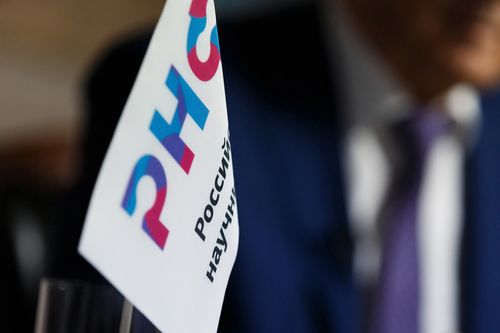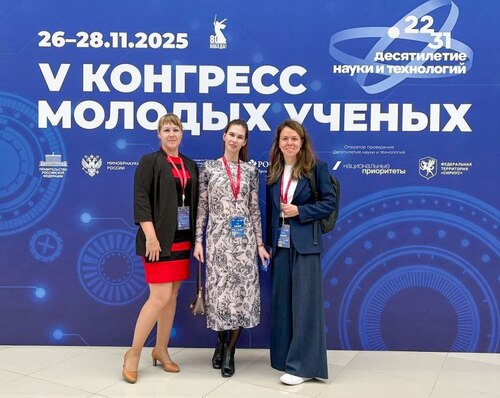
The core agenda of the meeting included two lectures. Director of the Kunstkammer (RAS Museum of Anthropology and Ethnography) Andrey Golovnev in his talk “Peter the Great and the Beginnings of Science in Russia” spoke about the fundamental role of Peter the Great in the formation of Russian science. Peter the Great not only made arts and sciences (including museology) in Russia trendy, but also provided them with an imperial status.
- Bringing sciences to Russia was somewhat of an experiment. This was largely due to Peter's personal ambition, to his nature - started his talk Andrey Golovnev.

Andrey Golovnev told about the unique, legendary personality of Peter the Great, his hobbies, travels, sea victories, which in many ways triggered the scientific self-discovery of Russia.
One of the main events in Peter's life is the first naval victory in the Neva River mouth, when the captain bombardier Peter Mikhailov (Tsar Peter) and lieutenant Alexander Menshikov with several boats seized two Swedish ships - the ten-cannon galliot Gädda and the eight-cannon snow Astrild. This occasion was commemorated by a medal with the inscription “The impossible is possible”.
- Peter's entire biography consists of this motto “The impossible is possible”: the founding of St. Petersburg (the city was founded on foreign land), Russia's victory at sea, creation of the “northern paradise”. Peter, a spontaneous explorer, is not afraid of the unknown, the unfamiliar, the unprecedented, on the contrary, he transcends these boundaries and makes the unprecedented happen - says Andrey Vladimirovich.

A traveler, spontaneous explorer, ethnographer, cartographer, and scriptwriter, the Tsar was not only the creator of the science system in Russia, but also the inspirer and the best collector of the Kunstkammer collections.
- The Kunstkammer is Peter's creation. The museum's first acquisition is an astronomy exhibit - the Globe of Gottorf, the Kunstkammer begins with it, it is the museum's main exhibit, which gave the Kunstkammer the right to be called a royal museum - noted Andrey Golovnev.
Andrey Vladimirovich completed his talk by quoting Peter the Great’s remark about sciences:
«… Sciences circulate in the world like blood in the human body, and I hope that they will soon resettle to us too... I foresee that Russians will someday, and maybe even in our lifetime, beshame the most enlightened nations by their achievements in sciences, indefatigability in labor and the majesty of a firm and thunderous glory»
Nadezhda Lobanova's lecture dealt with the unique rock art sites protected by UNESCO. Senior Researcher at ILLH KarRC RAS told about the main rock art sites of Europe, Africa, Latin America and Asia.

- The first and so far the only Russian rock art items - petroglyphs of Karelia - received this status in 2021. Petroglyphs of Karelia are a prominent part of the ancient rock art of Fennoscandia. Onego and White Sea petroglyphs have similar features due to the similarity of economic systems, people’s livelihoods, and the timeframe. The differences are due to local environmental features, the making style and, probably, the worldview and aesthetic preferences of the creators of the rock galleries - said Nadezhda Lobanova.
In submitting the integrated nomination of petroglyphs of Karelia to UNESCO, one of the primary tasks for scientists from the Karelian Research Center RAS was to prove that the petroglyphs of Lake Onego and the White Sea are inextricably linked, and to affirm their chronological and cultural similarity.
- Both sites are elements of the same genetic chain of successive creative practice, gradually leading to the emergence of multi-figure narrative ensembles or scenes with insightful and complex content, most likely of mythological nature - told Nadezhda Lobanova.
In conclusion, Nadezhda Valentinovna remarked that the inclusion of Karelia's petroglyphs in the UNESCO list of sites was a complex and lengthy process. In addition to proving that the sites meet at least one of the UNESCO criteria, it is necessary to implement protection and conservation work in these unique sites, to have site management plans and structure, to take efforts to raise awareness and the prestige of the sites. Karelia managed to accomplish this within record-short time.

Summing up, KarRC RAS Director General Olga Bakhmet emphasized the need to continue providing information about the activities of the Karelian Research Center RAS for the study and preservation of these unique ancient rock art sites, including through mass media.
Photo report from the meeting is available in Karelian Research Centre’s VK group.












